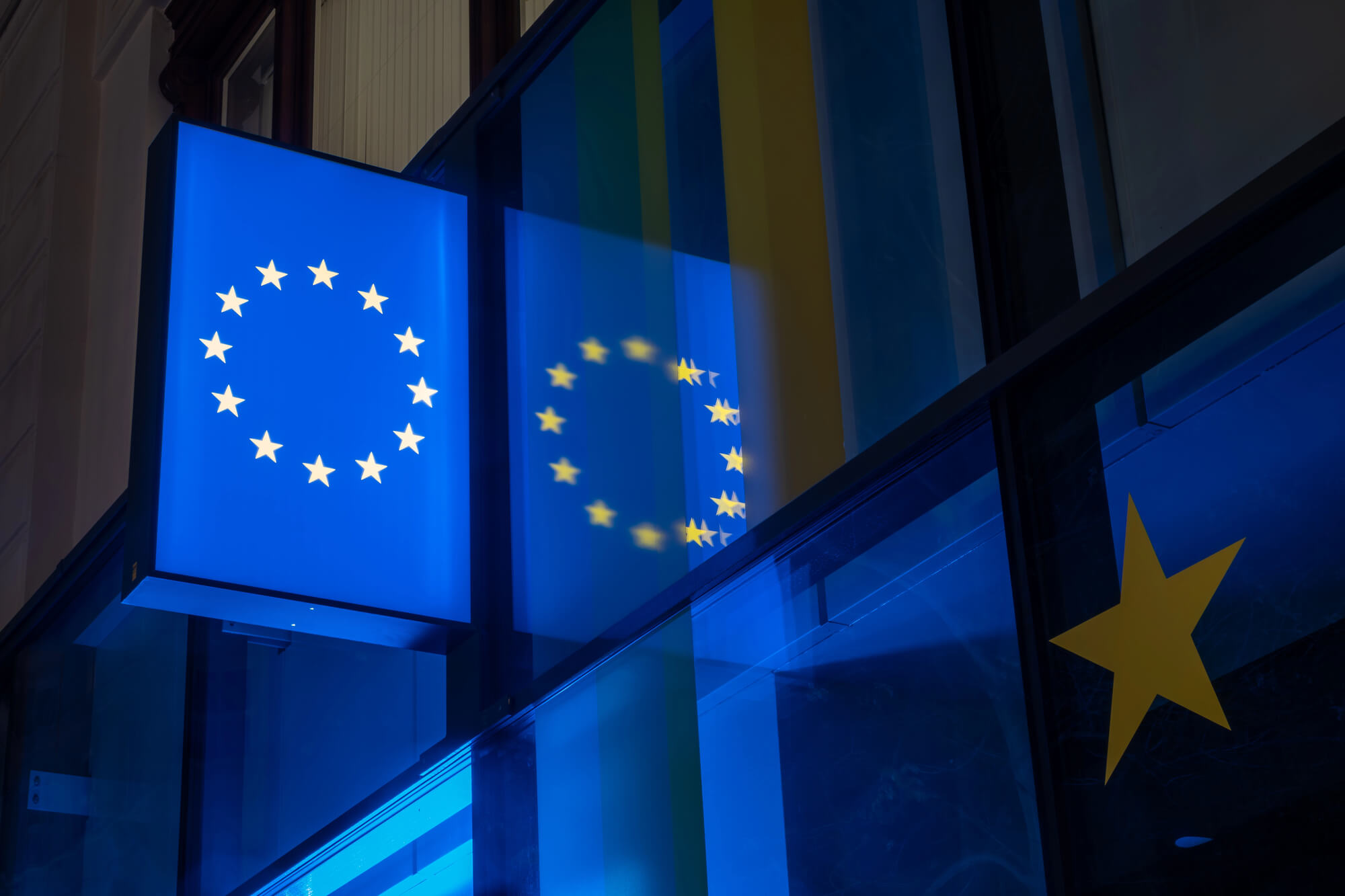The rise of Euroscepticism has become one of the most dangerous threats to a united Europe. Brexit and leadership of Marine Le Pen at the presidential elections in France are evidence of a new wave of the EU crisis. If ignored, it can turn into the most ambitious disintegration process since the collapse of the Soviet Union.
Experts have long emphasised strengthening of the positions of political parties, which have a clear far-right populist rhetoric against further integration of the EU member states, and sometimes even against its very existence. In addition to the migrant crisis, considered the key reason for the growing popularity of far-right politics, it’s necessary to pay attention to another issue, which demonstrates serious mistakes in the EU development processes.
National vs supranational
On 26 February 2017, Italian newspaper La Stampa published an open letter from the chairmen of the lower chambers of the parliaments of France, Germany, Luxembourg, and Italy on the occasion of the 60th anniversary of the establishment of the European Economic Community. In the letter, the parliaments of the EU founding countries call for creation of a European Federation: “It’s high time to move on to a closer political integration, to the creation of a Federal Union of states with greater powers,” reads the letter.
We shouldn’t underestimate the role of this statement, since it can indicate not just a new stage in the development of Western Europe, but also changes in the definition of the optimal type of state, which has been existing for several centuries now.
The French Revolution of 1789 marked the beginning of a long process of transformation of European monarchies into nation-states, which have become familiar to us. A nation-state represents a nation as a group of people who share a common identity. Commitment to respect of natural human rights, such as personal freedom, freedom of speech, and freedom of beliefs, explains the need for transition to the national form of a state.
The third article of the French Declaration of the Rights of Man and of the Citizen reads: “The principle of any sovereignty resides essentially in the Nation. No body, no individual can exert authority which does not emanate expressly from it.” [1]. The idea of sovereignty of a nation over sovereignty of a monarch formed the basis for many risings, dubbed The Springtime of the Peoples, that swept Europe in 1848. Later, these processes were continued by Piedmontisation (Risorgimento) and Prussianisation, which resulted in the creation of the united states of Italy and Germany, respectively.
The dominant feeling behind these revolutions is the feeling of nationalism. In his article Nationalism Is Rising, Not Fascism, American political scientist George Friedman argues that the desire for national self-determination, manifested in the form of nationalistic moods, has become the basis for creation of the modern liberal democracies. A key feature of many large European states of the late 18th and early 19th centuries was their supranational form. Most of these states were large empires, with a privileged nation that made up most of the country’s political elites, and a multitude of ethnic groups, which were numerically superior in several regions.
It’s obvious that forcible annexation of territories, assimilation policy, and absence of the right of nations to self-determination are now considered a gross violation of human rights. However, the national factor has been often ignored throughout most of history. Austria-Hungary has been such a state formation, also called a “patchwork empire”, because of the presence of more than 20 different ethnic groups. Supranational empires have existed for many years after the end of World War II. The Soviet Union was a highly-centralised union of 15 republics — a sort of nation-states, which nevertheless were peripheral to the Moscow centre.
British philosopher Ernest Gellner was the first to systematise the principles of emergence of the concept of nationalism in his book Nations and Nationalism. First, according to Gellner, nationalism consists in the congruence of the political and the national unit.
It’s possible to achieve this principle when the state represents a specific political nation. In such a situation, if a nation experiences a nationalistic feeling, this is a feeling of indignation, caused by the violation of the basic principle of the nation’s self-determination, as well as the possibility of its self-expression through its own political unit [2].
The conflict between national and supranational forms has become the driving force behind the fall of major empires, as well as decolonisation and democratisation processes. The opposition of national movements to absolute monarchies and to the centre led to balkanisation of supranational empires, which resulted in the emergence of many nation-states. The national feeling provided the basis for emergence of modern liberal democracies, which are based on the principles of human rights, including the right to self-determination.
The fall of the nation-state
It seems that after hundreds of years after the overthrow of the Bourbon dynasty in France, the abolition of absolute monarchies in Europe, and the collapse of the Soviet Union, the process of transformation of various states into a national form has gradually begun. Nevertheless, in recent years there has been a trend towards a new phenomenon — the supranational union (supranational state), which is especially prominent in Western Europe [3].
Formally, there hasn’t been a clear form of a supranational state in the world, though the European Union is the first contender for such a status. Although the EU is considered an economic and political union, it has long exceeded its original scope.
It has many state symbols: flag, anthem, currency (in the Eurozone countries), and the ability to pursue foreign policy and security policy. All this makes the EU a state-like entity, and supranational institutions allow it to be considered a kind of a federal union of European states (not in the strict sense of the word) [4].
The first attempts to turn the EU into a unified federation took place in 2001, when preparations to establish the European Constitution began. The draft constitution envisaged serious development and empowerment of the EU institutions, as well as expansion of the powers of the European Parliament. There were established posts of the President and the Minister of Foreign Affairs, who had the right to pursue foreign policy on behalf of the member countries. Despite the support of many parliaments, the constitution wasn’t ratified due to its failure at the referendums in France and the Netherlands. In Germany, the Constitutional Court stopped the implementation process.
Nevertheless, the EU leaders didn’t abandon the idea to expand institutional powers. In 2015, the head of the European Commission Jean-Claude Juncker called for an EU army. He said this would allow Europe to take greater responsibility for what is happening in the world, and to establish security cooperation between the EU member states. Even though the heads of the European states regard the EU army only as a form of collective security cooperation, there are reasonable grounds to believe that such a military union will serve as an alternative to NATO, where the US will no longer play a dominant role.
The EU federalisation plan also remains relevant. In May 2015, Polish newspaper Rzeczpospolita announced that German Chancellor Angela Merkel and French President François Hollande sent Jean-Claude Juncker, the President of the European Commission, their plan for a European federation, which envisages strengthening cooperation in the areas of economic policy, financial markets, and taxation.
Is there a place for a European Federation?
By 2016, the EU leaders have significantly changed their stance. On 22 August, the tiny Italian island of Ventotene hosted a meeting between President Hollande, Chancellor Merkel, and Italy’s Prime Minister Matteo Renzi. Rzeczpospolita argues that Hollande and Renzi insisted on signing a new “political pact” during the celebration of the 60th anniversary of the European Economic Community’s founding. Renzi offered a plan for transferring new powers to Brussels in the areas of finance, defence, and migration policy. The Prime Minister of Italy believes this would revive the EU economy and prevent other countries from leaving the EU following the example of Britain.
However, there was no signing at the celebrations on 26 February this year. Italian Minister for European Affairs Sandro Gozi said: “In this matter, we already have the support of France. Now we need to convince Germany.” It is obvious that Angela Merkel adopted a different position. In Germany, the popularity of Eurosceptics is increasing, in particular of the party Alternative für Deutschland, which won 10 of 16 seats in Landtags (land parliaments) in September 2016, outrunning Merkel’s Christian Democratic Union in some lands. Prior to this, Eurosceptics received 7 of 96 seats from Germany in the European Parliament.
In this situation, Chancellor Angela Merkel felt that any rapprochement, especially on the eve of German elections, would only “add weight to the Eurosceptics’ voices.” This opposition gives reason to believe that Merkel, at least in the nearest future, will support a more pragmatic camp, which includes Poland, where representatives of the Prawo i Sprawiedliwość party, Prime Minister Beata Szydło, and President Andrzej Duda oppose further federalisation of the European Union.
In such a situation, the Eurosceptics’ concern about further federalisation of the European Union and its transformation into a supranational union look justified. The main threat around which they are building their polemic is the loss of state sovereignty of the member states, which will happen in the event of the EU transformation.
lthough federalisation, in its classic form, is characterised by a significant decentralisation level — transformation of the EU into a federal union will mean institutional changes, including creation of a single political institution for making managerial decisions [4]. In any form, this will once again create a threat to national sovereignty, especially relevant for many Central European states, which are inferior in the population size and the level of economic development to the EU leaders.
It can be argued that many nations will face a familiar threat to their representativeness, which will consist in a significant restriction of their representation in government bodies. It means that the state again ceases to be a form of expression of political will.
The threat to sovereignty has become a major argument of Brexit supporters. Along with the problem of illegal immigration, significant expansion of the powers of the EU institutions has become a reason for the growing popularity of the far-right movements in Europe. Today, many citizens of the EU member states see an alternative to the Brussels bureaucracy in the Eurosceptic rhetoric, despite its obvious populism. This is a serious challenge not only to the EU further development plans, but also to its existence as a unified system.
Notes
[1] “Declaration of the Rights of Man – 1789”. Yale Law School, Lillian Goldman Law Library; The Avalon Project: Documents in Law, History and Diplomacy, Article 3
[2] Геллнер Эрнест: “Нации и национализм”. Москва, издательство “Прогресс”, 1991 г. С. 23-24
[3] Newton K., van Deth J. W.: “Foundations of Comparative Politics. Democracies of the Modern World”. Cambridge University Press, 2010. С. 386-387
[4] Central Intelligence Agency: The World Factbook. Europe: European Union
[5] PD. Dr. Thomas Schmitz: “The conception of the European Union as a supranational federal polity”. Faculty of Law of the Georg-August Universität Göttingen, 2004/2005. C 12-13
Attention
The author doesn`t work for, consult to, own shares in or receive funding from any company or organization that would benefit from this article, and have no relevant affiliations



